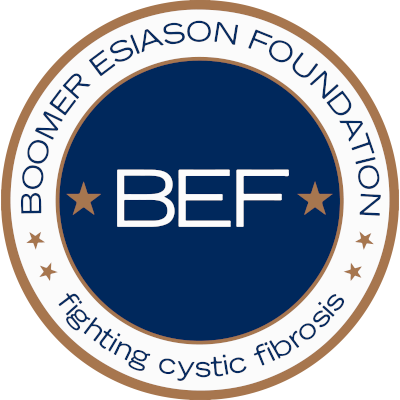Post sponsored by Clarametyx
While new therapies for cystic fibrosis (CF) are increasingly available to our community, many people with CF still face persistent and repeated infections that require the use of antibiotics. Now, researchers are developing a new approach to address these chronic infections by focusing on the biofilm, which is a protective shield that forms around bacteria and makes it harder for immune cells or antibiotics to effectively clear the bacteria. CMTX-101, which is in development by Clarametyx Biosciences, is a novel “biofilm disruptor” that is now in a Phase 2 clinical trial to determine if it helps to reduce infections in people with persistent CF-associated Pseudomonas infections.
Why target the bacterial biofilm?
CMTX-101 is specifically designed to rapidly destroy the structure of the bacterial biofilms to break down their defenses. It is a monoclonal antibody that works by breaking down a specific protein that is universally present across bacterial biofilm structures. This approach could treat a range of bacterial infections, including infections in people with CF where multiple types of bacteria are present.
When CMTX-101 is administered, the antibody binds to and removes the specific protein from the biofilm structure, and the biofilm collapses. Without the biofilm, bacteria are more vulnerable to antibiotics or the body’s immune response.
CMTX-101 study details
This Phase 2a study is enrolling adults with CF to determine the right dosage of the treatment while evaluating safety, tolerability, and other endpoint measures assessing the health of a person with CF. The goal is to understand the degree to which breaking down the biofilm allows antibiotics to work more effectively. The study will also track how the body metabolizes CMTX-101 by measuring how much of the drug is present in the blood and sputum.
In the study, participants are dosed with a single IV infusion of CMTX-101 or placebo, followed by 28 days of inhaled antibiotics. To standardize and measure how much of an effect the combination of the biofilm disruptor and the antibiotic have on the bacteria, all participants in the study must have confirmed infections with the pathogen Pseudomonas aeruginosa. Researchers will monitor adverse events and changes in vital signs by conducting physical exams, blood draws, and sputum collection.
Goals of this novel approach for the CF community
Recurrent infections are a significant challenge for people living with cystic fibrosis and their families. Clarametyx is working hard on its development efforts to understand if this biofilm-focused approach could become a new tool to alleviate the burden of chronic infections.
In preliminary nonhuman research, CMTX-101 was shown to rapidly collapse the biofilm, increase the effectiveness of antibiotics and reduce the potential for resistance across a broad range of bacterial biofilms. It was also previously evaluated in a Phase 1 trial in healthy volunteers and people with community-acquired bacterial pneumonia, with no safety signals. If CMTX-101 demonstrates efficacy in human studies, it could help improve the time required to treat an infection and eliminate it and help reduce the need for repeated courses of antibiotics.
David Richards, Chief Executive Officer of Clarametyx, comments: “The risk of chronic infections, as well as the need for prolonged courses of high-dose antibiotics, place a huge burden on people living with cystic fibrosis and their families. Our goal at Clarametyx is to disrupt bacterial defenses to relieve this burden and improve quality of life.”
Where to find out more
If you are interested in learning more about eligibility for this study, visit the Cystic Fibrosis Foundation Clinical Trial Finder and reach out to a research coordinator. You can find out more about Clarametyx and its research at www.Clarametyx.com.
